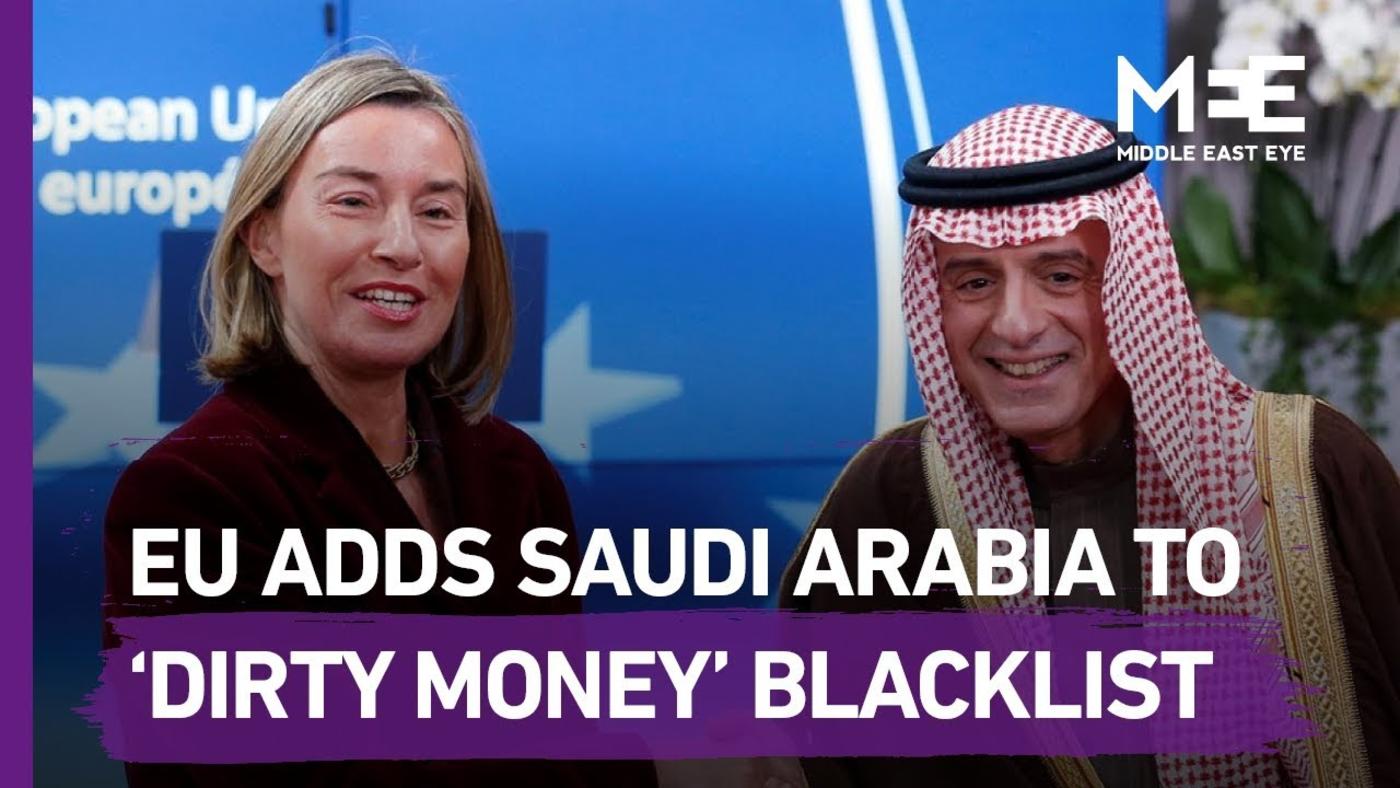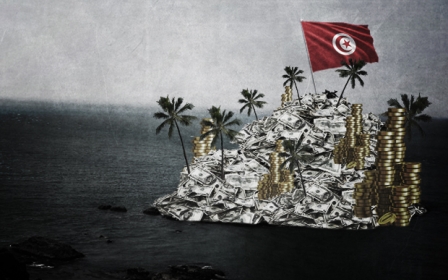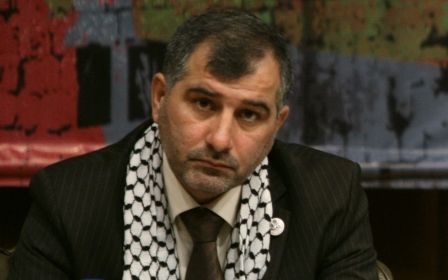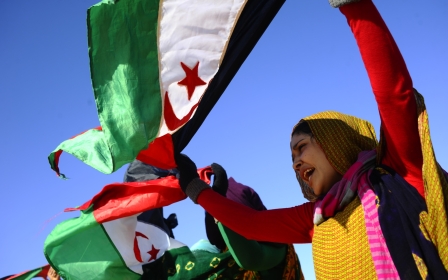EU adds Saudi Arabia to 'dirty money' blacklist
The European Commission has added Saudi Arabia to a list of 23 countries seen as havens for money laundering and the financing of terrorism.
Inclusion on the list on Wednesday means the EU will now carry out additional checks on payments involving the kingdom and other listed jurisdictions, including Panama, Nigeria and the US Virgin Islands.
The countries listed, however, are not expected to be sanctioned or have restrictions applied on their trade relations with the EU.
The list was compiled as part of a crackdown on money laundering and terror financing following several recent scandals, including some involving EU banks.
"We have established the strongest anti-money laundering standards in the world, but we have to make sure that dirty money from other countries does not find its way to our financial system," EU Justice Commissioner Vera Jourava said in a statement.
New MEE newsletter: Jerusalem Dispatch
Sign up to get the latest insights and analysis on Israel-Palestine, alongside Turkey Unpacked and other MEE newsletters
"Dirty money is the lifeblood of organised crime and terrorism. This is an invitation to address your weaknesses."
Riyadh's addition to the list comes with growing concerns in the EU of the risk that Saudi Arabia poses in relation to terrorist financing, according to internal documents seen by Bloomberg.
But there are also several EU states who fear that the measure will impact trade relations with the Gulf kingdom.
Jourava said that the EU list is subject to continued monitoring and revisions, meaning that the EU can take countries off the list based on legislative reforms.
This is the first time the commission has compiled a blacklist based on its own methodology.
Countries are listed if they have "strategic deficiencies in their anti-money laundering and countering the financing of terrorism regimes", according to the commission's working document.
Saudi Arabia did not respond to requests for comment by Middle East Eye at the time of writing.
Other countries from the Middle East previously added to the commission's list include Iran, Iraq, Libya, Syria, Tunisia, and Yemen.
The 28 EU states now have one month, which can be extended to two, to endorse the list. They could reject it by a qualified majority.
The EU released its first ever blacklist last year in the wake of the Panama Papers leak, but was widely criticised for failing to apply its criteria to its own states which have some of the world’s worst tax havens.
Middle East Eye delivers independent and unrivalled coverage and analysis of the Middle East, North Africa and beyond. To learn more about republishing this content and the associated fees, please fill out this form. More about MEE can be found here.





